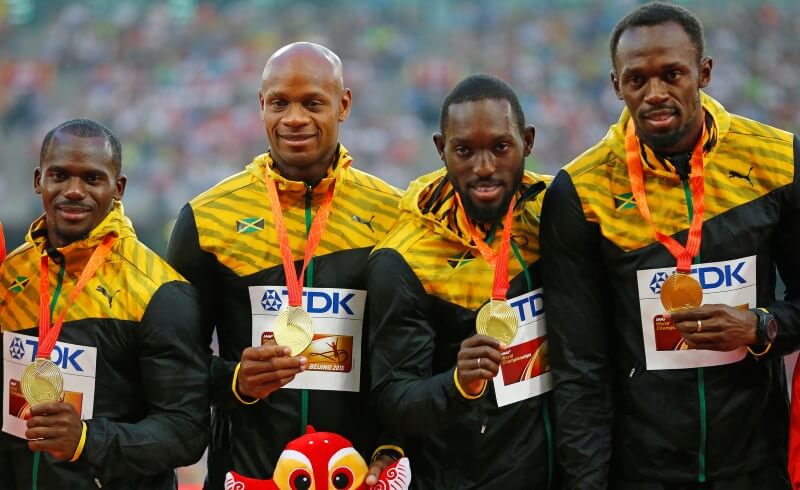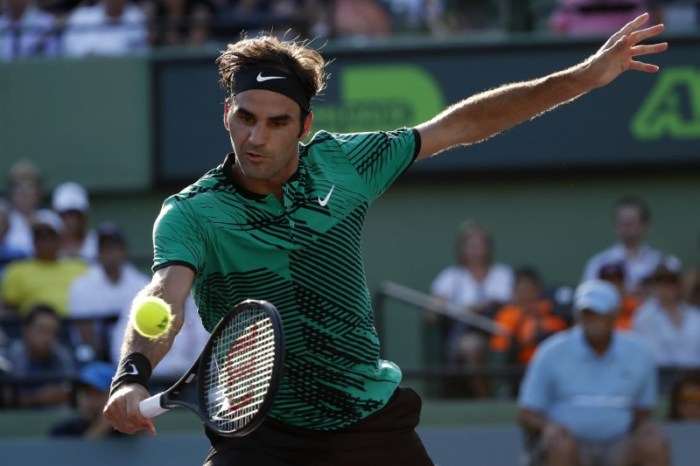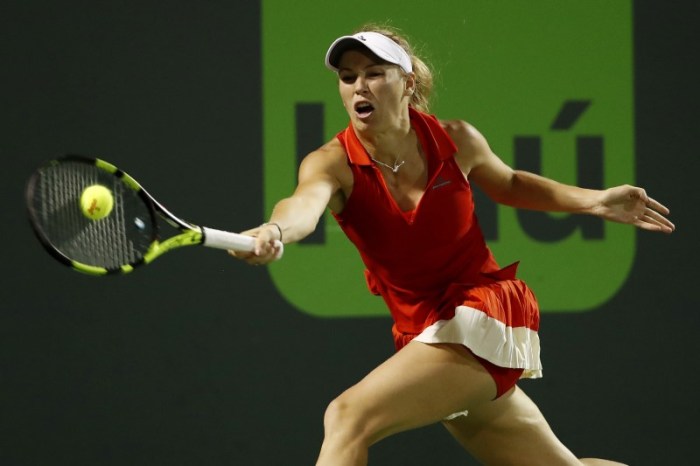By Kayon Raynor
KINGSTON (Reuters) – Jamaican Olympic sprint relay gold medalist Nesta Carter has returned a doping violation for a banned stimulant after the re-testing of 454 samples from the 2008 Games, two sources familiar with the case told Reuters. The Jamaica Olympic Association (JOA) said in a statement on Friday it had received notification from the International Olympic Committee (IOC) that one of its competitors had returned an adverse analytical result but did not name the athlete. The JOA said results management protocols require that they “maintain confidentiality of the result of all doping controls and the identities involved in the proceedings until it has been determined in a hearing”. Jamaica Athletics Administrative Association president Warren Blake said his organization had not been notified of any rule violation.
The sources, who spoke on condition of anonymity, said traces of Methylhexanamine were discovered in Carter’s “A” sample, part of a batch of 454 from the 2008 Beijing Games the IOC ordered to be re-tested. Carter could face sanctions if his “B” sample also tests positive.
Reuters has not seen the laboratory results.
Neither Carter, who won the 4×100 meters relay along withcompatriots Usain Bolt, Asafa Powell and Michael Frater in Beijing, nor his agent replied to repeated requests for comment.
Methylhexanamine has been on the World Anti-Doping Agency (WADA) Code prohibited list since 2004 although it was reclassified on the 2011 list as a “specified substance”.
WADA defines specified substances as those that are more susceptible to a “credible, non-doping explanation”.
Sold as a nasal decongestant in the United States until 1983, Methylhexanamine has been used more recently as an ingredient in dietary supplements.
REVISITING SAMPLES
The IOC program of revisiting samples is aimed at using developments in testing techniques to expose traces of drugs that were undetectable in 2008 or 2012.
Doping cases are usually handled by the relevant national federations and national anti-doping agencies but the IOC has decided that any arising from the re-tests will be dealt with directly by them. “We want to keep dopers away from the Olympic Games in Rio de Janeiro (in August). This is why we are acting swiftly now,” IOC president Thomas Bach said last week when announcing the re-checking of 265 samples from the 2012 London Olympics. “I have already appointed a disciplinary commission which has the full power to take all decisions on behalf of the IOC.”
First-leg relay specialistCarter has been a vital member of Jamaica’s dominant squad,helpingthe Caribbean island win gold medals at the 2008 and 2012 Olympics and the 2011, 2013 and 2015 world championships. The 30-year-old has not run this season, citing a foot injury, but is expected to race in the next few weeks ahead of Jamaica’s Olympic trials from June 30 to July 3.
Historically, the sanction for the use of Methylhexanamine has been a suspension of six months to a year and the loss of results from the period concerned.
PUBLIC WARNING
Sanctions for use of a stimulant can range from a public warning upwards.
Althoughhis relay team mates arenot accused of doping, it is possible the IOC could strip them of their gold medals if Carter’s B-sample tests positive.
All members of the victorious American 4×400 relay squadat the 2000 Sydney Olympics were subsequently stripped of their medals after Antonio Pettigrew admitted a doping offence.
However, when American Marion Jones was stripped of her two relay medals from the Sydney Games for doping offences, her team mates kept theirs after an appeal to the Court of Arbitration for Sport. IOC spokesman Mark Adams said discussions over what to do with the medals won by any dope cheats exposed by the re-testing were ongoing.
“It is still being worked out,” he said. “What we want to do, and are trying to do, is target athletes who have positive results and stop them from competing in Rio.”
The IOC said last month that more than 30 athletes from six different sports had tested positive in the re-testing of 2008 samples and that it had launched disciplinary action against the as yet unidentified athletes from 12 countries. Twenty-three more positives were found following a re-test of 265 samples from the 2012 Olympics, the IOC said last week.
Russia has said 14 of its athletes from the 2008 Olympics had tested positive for banned substances and eight more from the 2012 Games.
The country’s athletics team have been suspended from international competition following a 2015 WADA commission report that accused the country of state-sponsored doping.
The International Association of Athletics Federations (IAAF), which suspended Russia, will vote on June 17 on whether to reinstate the sporting superpower’s athletics team and allow it to compete in Rio. The Rio Olympics take place from Aug. 5-21.
(Additional reporting by Gene Cherry in Raleigh, North Carolina, Steve Keating in Toronto, Karolos Grohamann in Lausanne and Mitch Phillips in London,; Editing by Ed Osmond.)
Jamaican sprinter Carter fails 2008 doping re-test

By Kayon Raynor

















